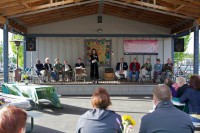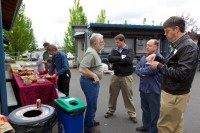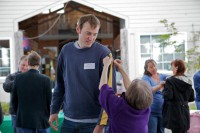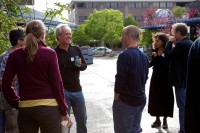Text by Kelli Bush, SPP Co-Director, The Evergreen State College
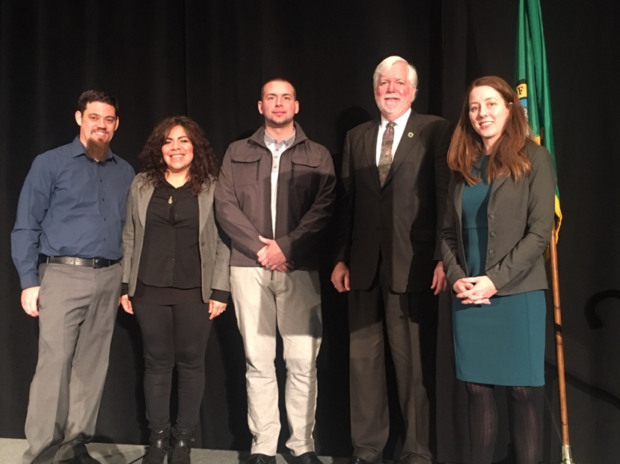
Presentation team with WSDOT Secretary Roger Millar (from left to right, Tony Bush, Carolina Landa, Brian Bedilion, Roger Millar, and Kelli Bush)
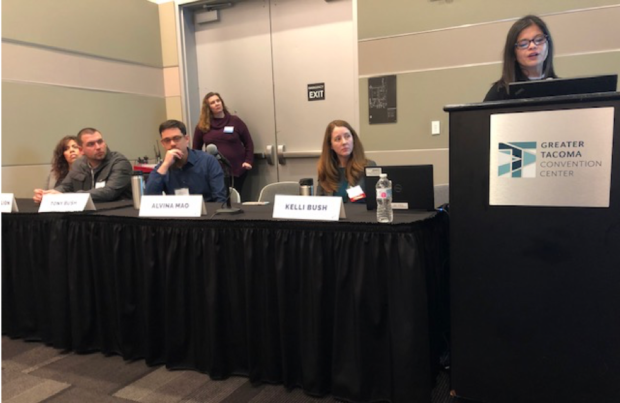
Alvina Mao presenting at WSDOT Partnerships and Innovations conference
Over the past year, SPP Evergreen staff have been working with Washington Department of Transportation (WSDOT) and Washington Department of Corrections (WA Corrections) partners to develop new opportunities for education and employment pathways. The new partnership has tremendous support from WA Corrections Secretary, Stephen Sinclair, WSDOT Secretary, Roger Millar, and many staff at each agency. Building on successful prison program tours and executive leadership and committee meetings, WSDOT staff invited SPP-Evergreen staff and former SPP program participants to present at two recent conferences.
Each conference presentation included a panel with Carolina Landa and Brian Bedilion sharing their stories from pre-incarceration to post-release, Kelli Bush providing a brief overview of SPP, Alvina Mao and Eric Wolin discussing partnership alignment with WSDOT equity and inclusion goals, and Tony Bush describing education and employment pathway ideas in the environmental field.
The audience for the first conference was WSDOT environmental staff. Session participants enthusiastically expressed their appreciation to Carolina and Brian for sharing their experiences.
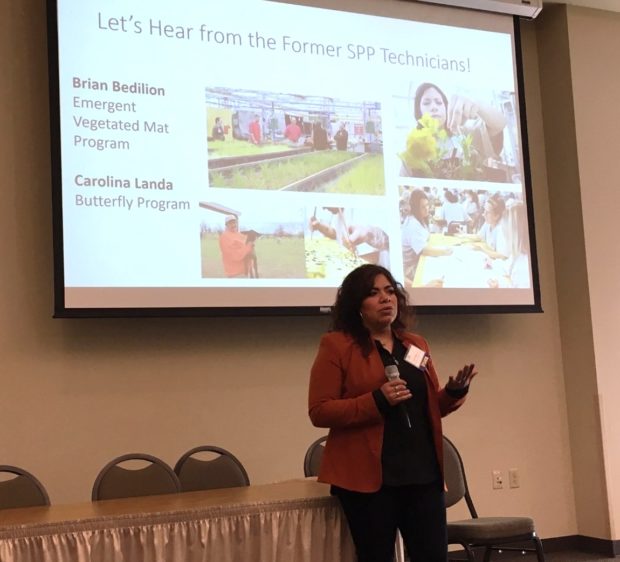
Carolina Landa presenting at WSDOT Environmental Conference
Following a successful session at the environmental conference, the panel received an invitation to present at the WSDOT Innovations and Partnership conference. The 4th Annual Innovations and Partnerships in Transportation conference included a welcome from Governor Inslee and an impressive variety of partner organizations. Our session titled “Forging a new partnership and building safe, strong communities through successful reentry” included productive discussion with attendees.
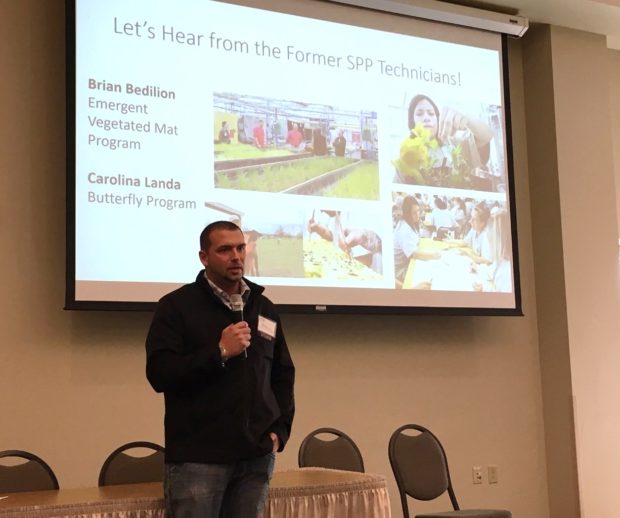
Brian Bedilion presenting at WSDOT Environmental Conference
The developing partnership among WSDOT, WA Corrections, SPP and others will provide exciting new education, training, and employment opportunities to incarcerated people in a variety of disciplines. Washington State Governor Inslee is a strong supporter of providing formerly incarcerated people employment as a way to build safer and stronger communities. The Governor signed executive order 16-05 directing state agencies to “implement further hiring policies intended to encourage full workforce participation of motivated and qualified persons with criminal histories.” We are grateful to WSDOT and WA Corrections for providing such excellent support and enthusiasm for this growing partnership.
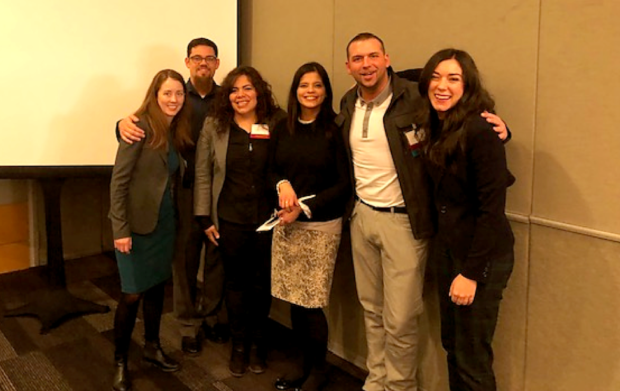
Conference presentation team (from left to right): Kelli Bush, Tony Bush, Carolina Landa, Alvina Mao, Brian Bedilion, and Molly Sullivan










